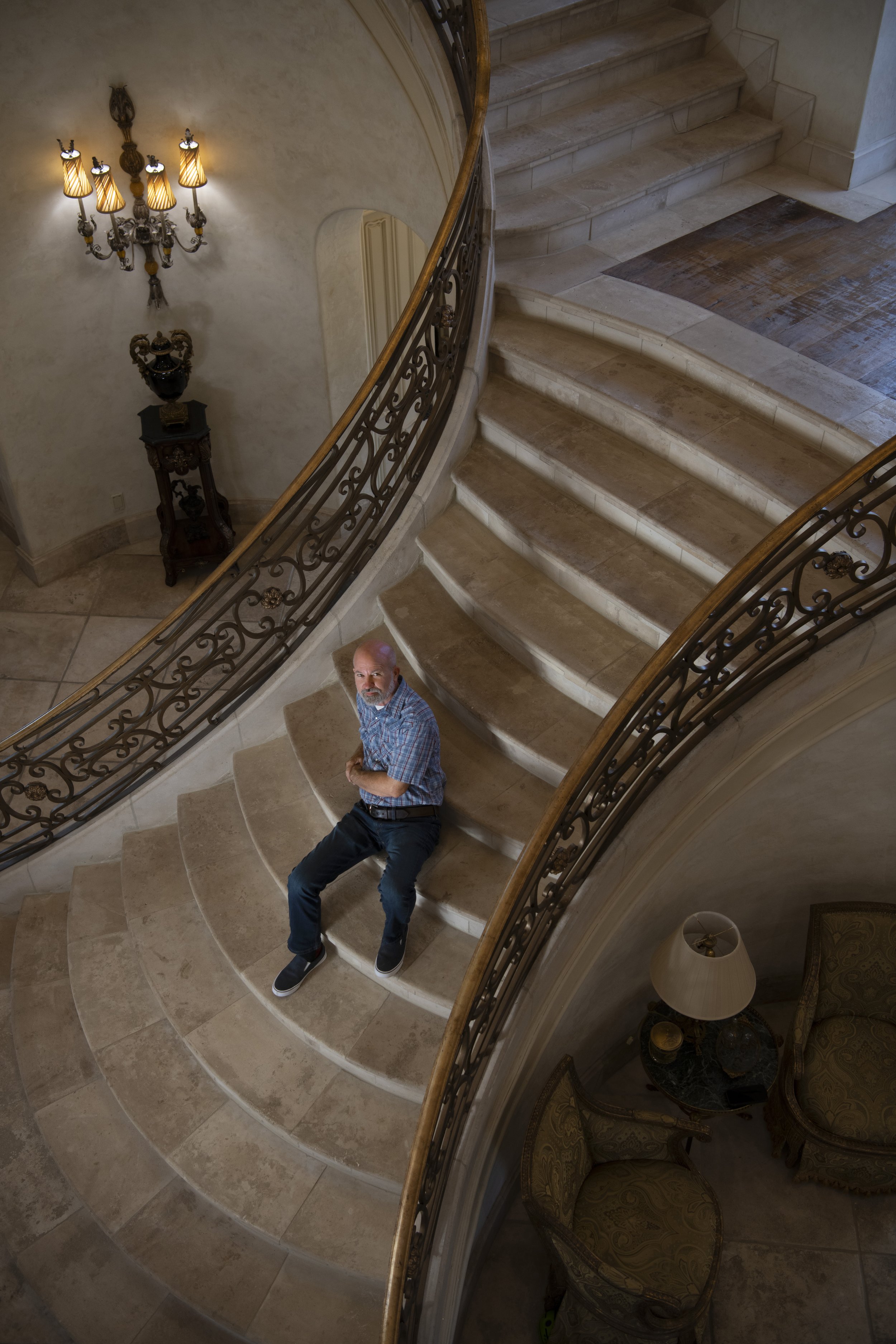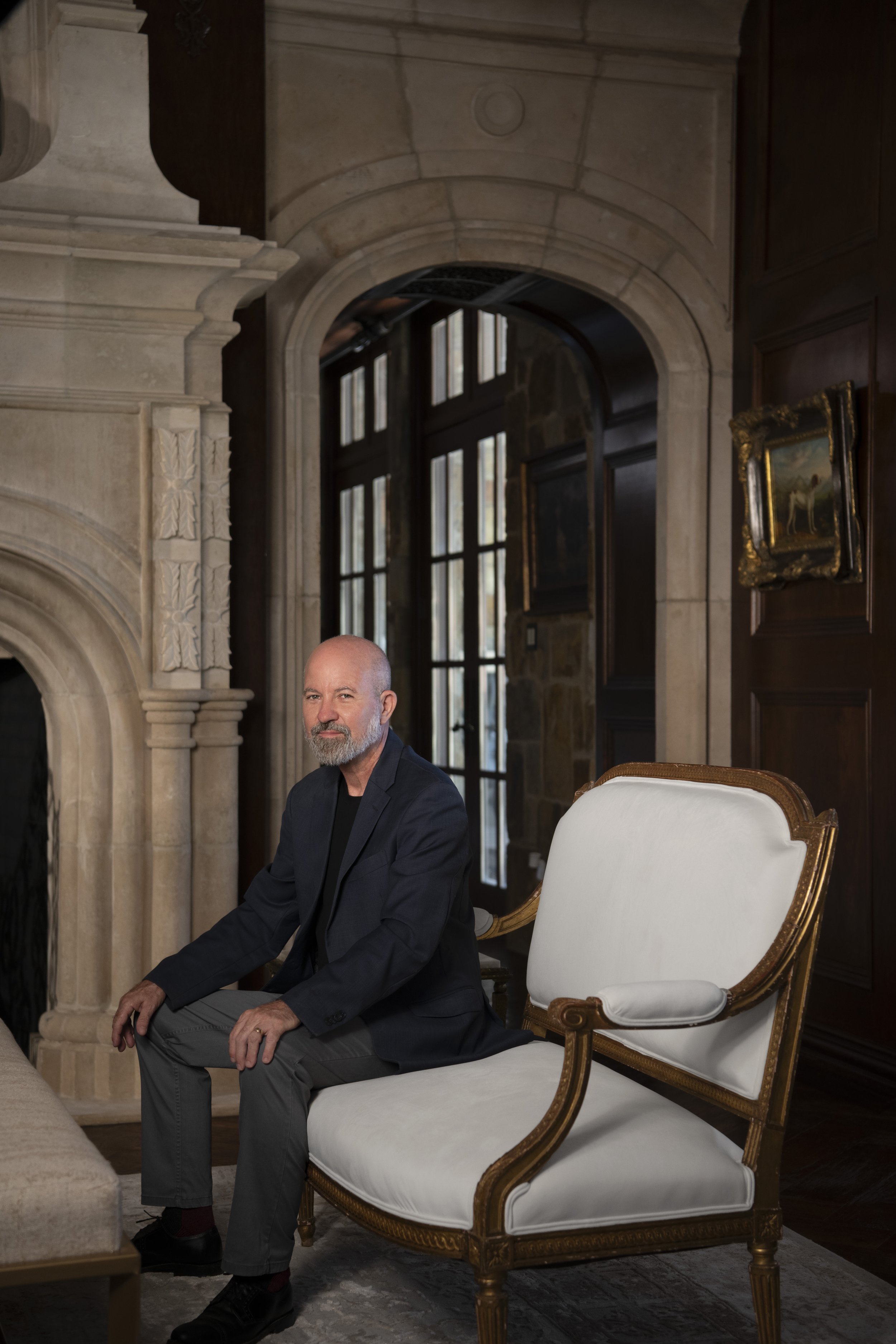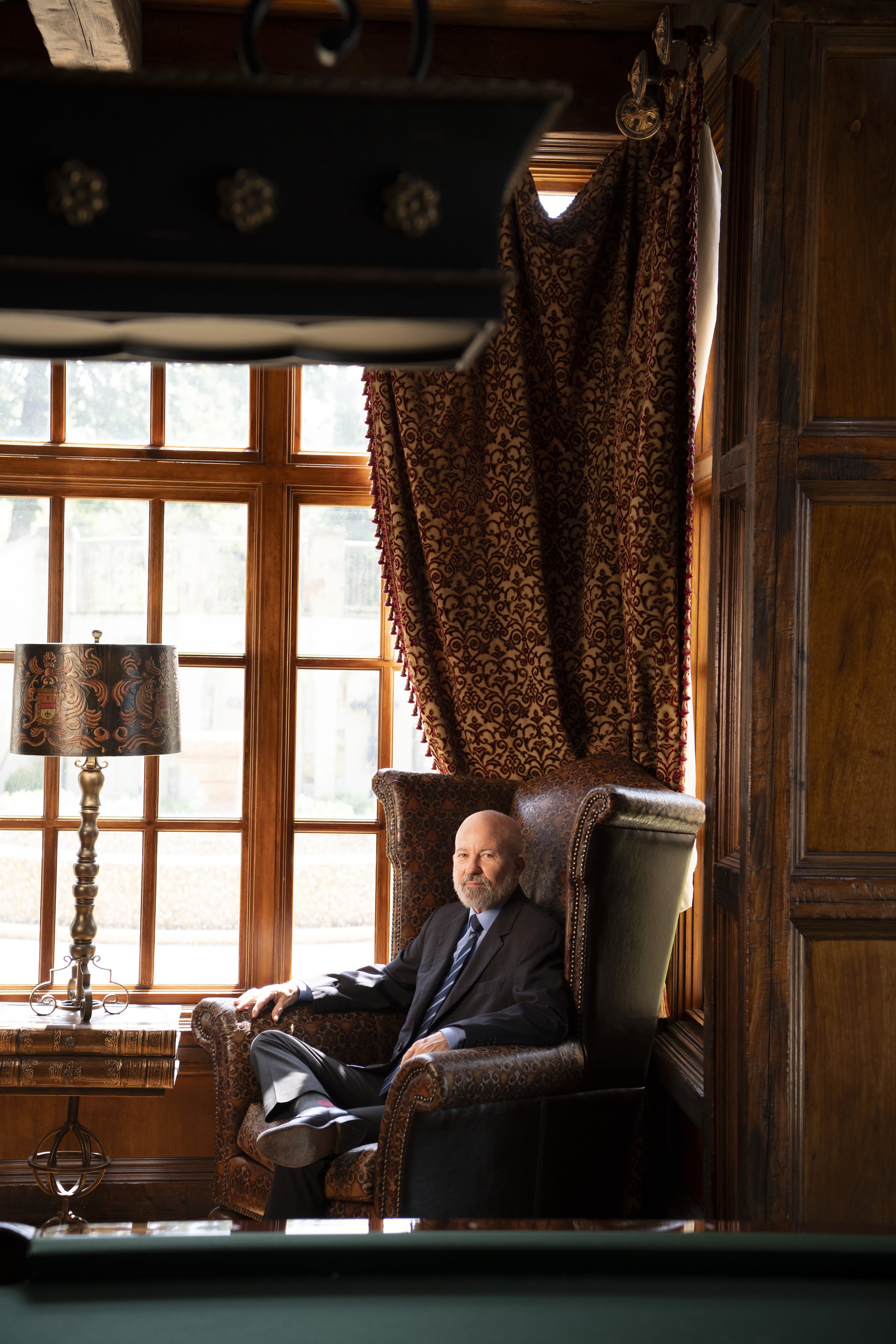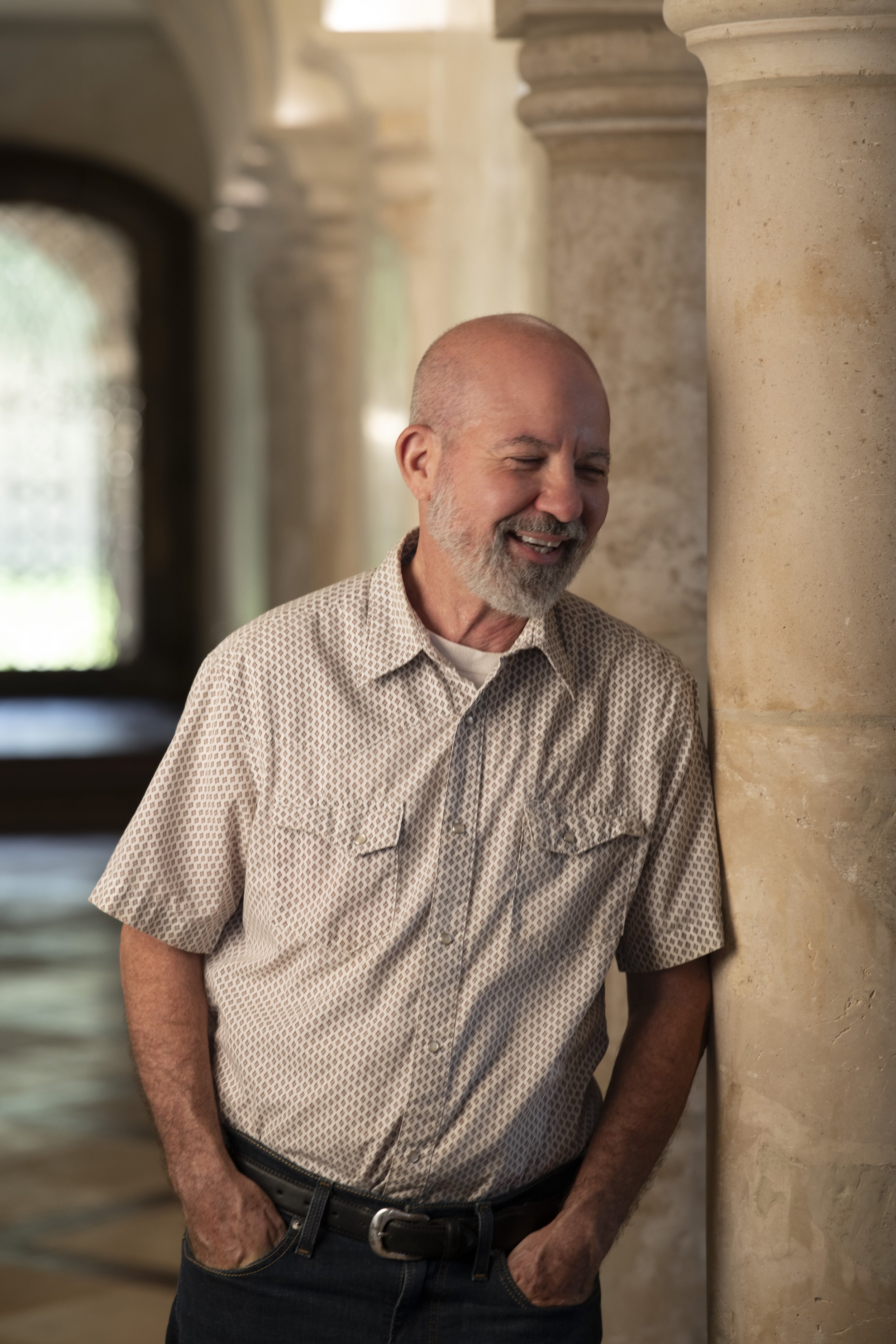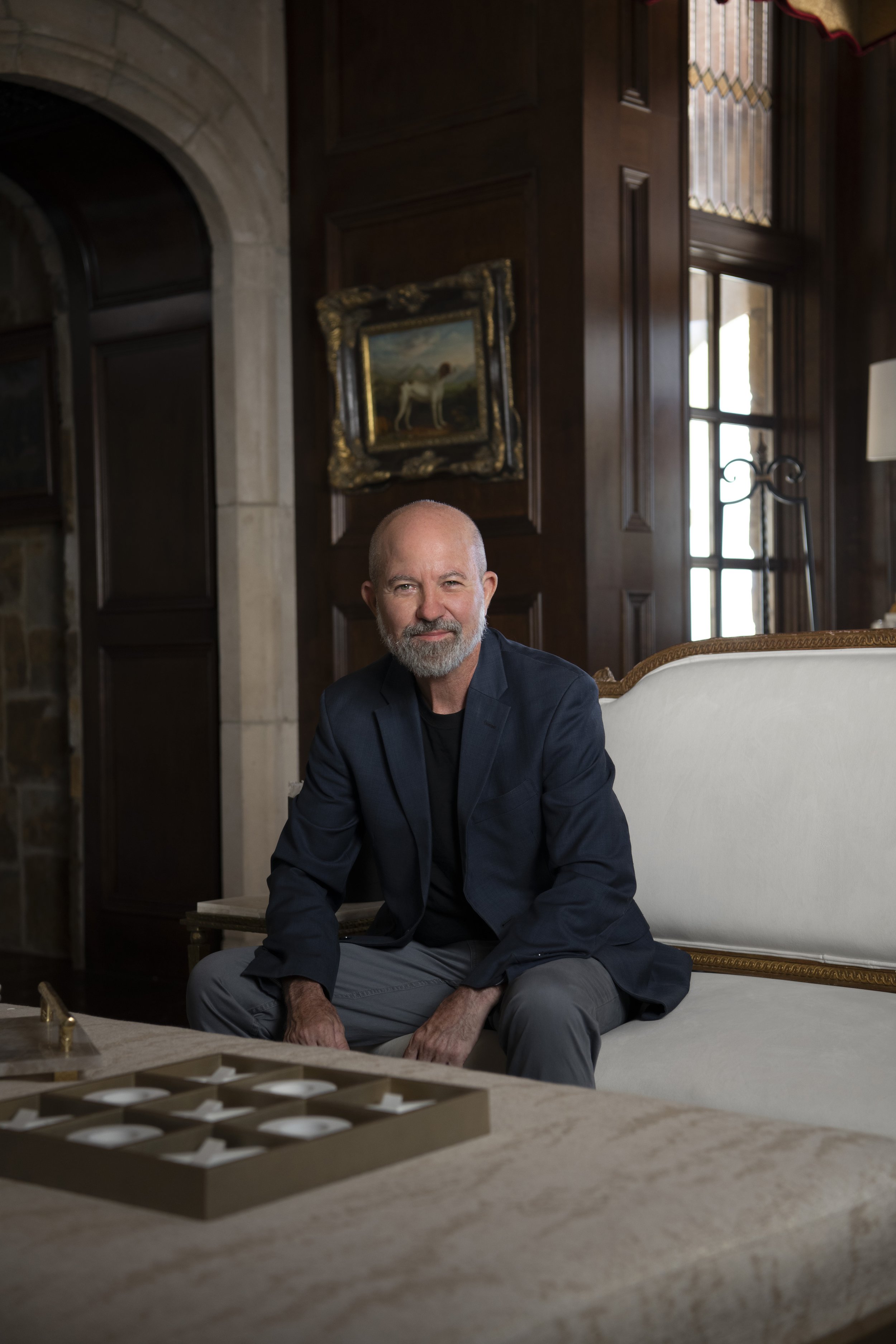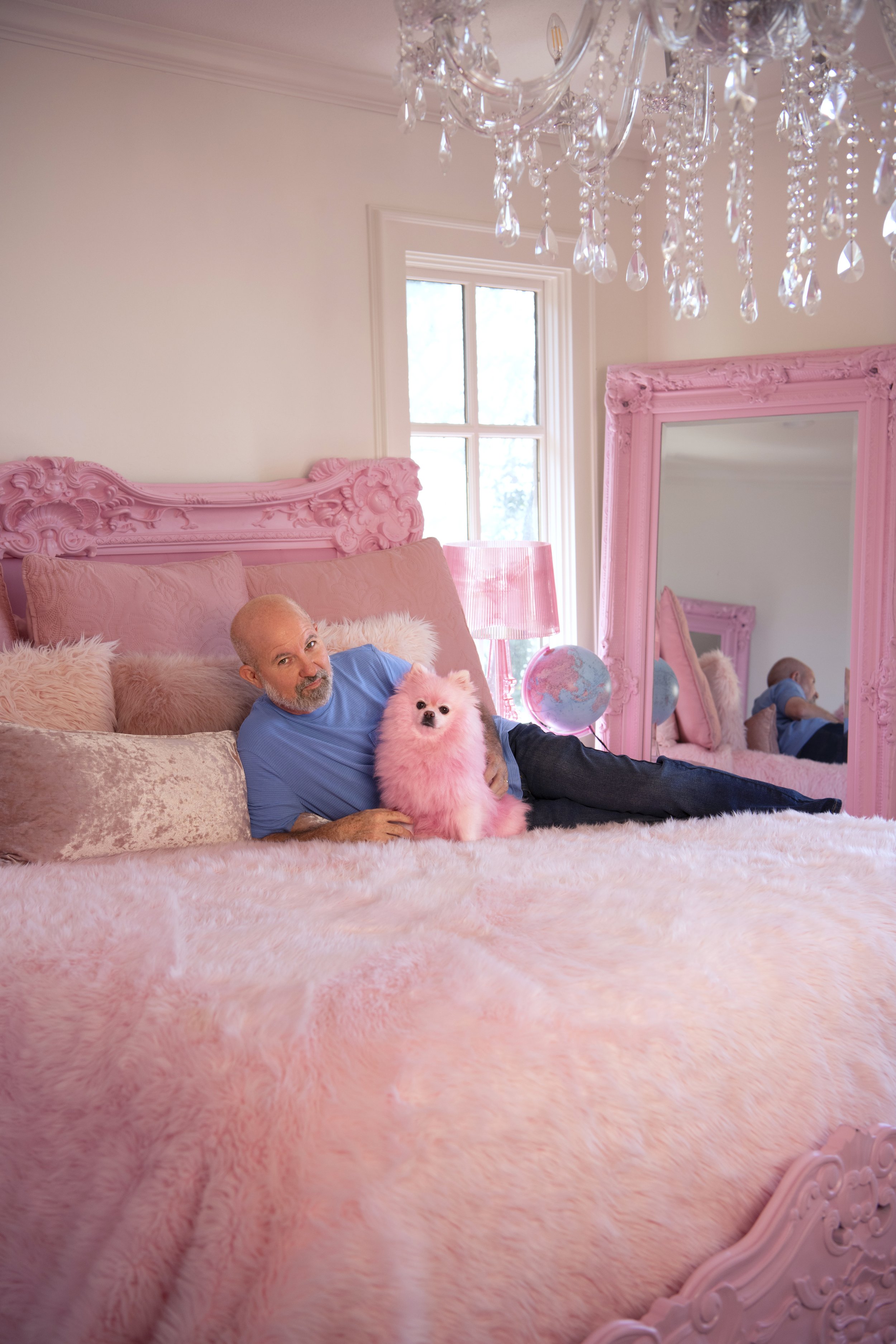SHANNON
MINTER
EYES ON
THE PRIZE:
FIGHTING TO WIN.
JUSTICE FOR ALL.
Written by Alan Uphold
Photographs by Paul Robinson
Critically acclaimed Los Angeles photographer, Paul Robinson, has created a 12-part series of photos and articles featuring twelve LGBTQ individuals who have used their notoriety, their celebrity, or their downright chutzpah to affect change in the LGBTQ+ community.
The series, named “Twelve Soldiers,” will feature Paul’s photographs and a profile of a different social justice warrior each month.
In addition to Paul’s incredible photos of the twelve featured soldiers, his company, NEFT Vodka will donate $1,000 to the charity of choice for each of the featured soldiers.
It’s an age-old story. A small town boy from the country grows up in a large, loving family, all of whom are dedicated to God and country. Then this young idealist goes off to college and moves to the big city to fight for noble causes. This particular telling of that familiar tale, however, started with a boy who was incorrectly identified as a girl at birth.
As a child growing in a small East Texas community, Shannon Minter’s life revolved almost exclusively around his community, his church, and his family. He could never have imagined that he would grow up one day to be an openly transgender man who would argue some of the most consequential LGBTQ cases in the American jurisprudence.
Minter’s childhood was one spent mostly with family, and frequently at church or church-related activities. As in many small towns across the American Midwest, everybody in town knew everyone else and usually knew everybody else’s business.
“My childhood was idyllic. I loved hunting and fishing with my Dad,” Minter recalls. “Both of my grandparents owned gas stations and little markets that were right across from one another. My sister and I used to run across the road back and forth from one store to the other—eating unlimited amounts of candy, ice cream, and soda.”
Shannon had a large extended family with lots of aunts and uncles and cousins. He even had a set of double cousins.
“My Mom’s sister married one of my Dad’s brothers. That means that some of my cousins were ‘double cousins’ which means we shared all four of our grandparents.”
“Those feelings I had about being different made me
feel insecure and cut off from other kids because I felt
like I had a secret that I was really worried about.”
Family gatherings and events were always joyful and contenting for Shannon, but as much as he loved spending time with his family, church was where he truly felt at home.
“Church was just the most loving and supportive place to be. I felt so happy there because I was surrounded by people who cared for me and accepted me. All my grandparents went there, and one of them was even my Sunday School teacher. I just felt so safe, and loved, and happy.”
But Shannon would soon learn that the overwhelming feeling of love and support he felt from his family and his church was not unconditional. There was something he felt inside. Something he recognized about himself that didn’t quite feel right but didn’t know what it meant.
“I was very athletic back then, and I had a lot of friends who were boys. I tried to have friendships with girls, but I felt more comfortable around the boys. I didn’t know what to make of it. I didn’t want to play with the girls. I didn’t want to wear a dress; I didn’t want to talk about what they wanted to talk about; and the games they wanted to play just kind of bored me.”
These feelings about traditional gender roles created some challenges for Minter as he tried to engage in social activities.
“I remember wanting so much to fit in, and instead I was socially a little bit awkward. I just remember being confused a lot and trying to figure out how to navigate these social landscapes.”
As he started to get older, Shannon’s realization that he was somehow different led him to bury himself in books.
“Those feelings I had about being different made me feel insecure and cut off from other kids because I felt like I had a secret that I was really worried about.”
“Reading was my escape. I read obsessively. I read anything and everything I could get my hands on—from Wall Street Journal to philosophy to conservative economic theory and religious theory.”
Things only got worse when puberty set in. Of course, puberty can be an awkward stage for any young person, but with Shannon, something more substantial was going on inside him.
Shannon recalls, “Puberty, that whole experience was just a complete nightmare. It was truly torturous for me. I didn’t really know what was going on, but I did know that I was attracted to girls. So I decided that I must be a lesbian.”
When his mother found out that he had a girlfriend, the results of that discovery were immediate and severe. Not unlike most people in the 70s, his parents believed all of the misinformation and misconceptions about what it meant to be a lesbian. They believed that he was intentionally making a choice, and that it was wrong and sinful. They thought he was doing it just to hurt them.
As a result, his parents cut him off, and he found himself isolated from his entire family.
“That was truly the most devastating period of my life. I struggled with that every day because I loved my family, my grandparents, and my church so much.
“That was truly the most devastating period of my life.
I struggled with that every day.”
It was hard to feel so alienated from my whole family and my church.”
Shortly thereafter, Minter went off to college, at University of Texas at Austin where he earned his BA and then on to Cornell University where he earned his JD. With a law degree in hand, and a desire to fight for honorable causes where he could make a difference, Shannon joined the National Center for Lesbian Rights (NCLR) as an attorney.
By the time Minter reached his mid-30s, he realized what he probably knew all along but couldn’t admit it to himself. He came to the realization that it was not that he simply liked girls. It was not that he was simply a lesbian.
There was more to it than that.
He realized that he was transgender.
Minter says he understands that not everyone in the community likes the term “gender dysphoria.” It’s a term that, according to the American Psychiatric Association, describes the psychological distress that results from the incongruence between the gender a person was assigned at birth and their gender identity.
Minter’s distress was very real, and the relationship with his family became even worse.
“I guess I had this feeling that maybe they would realize that because they hadn’t been supportive of me when I told them I was a lesbian, maybe they would make more of an effort to accept me transitioning. It was the opposite.”
Minter’s parents told him that he should not come home anymore because if he did, everyone in town would know that he had transitioned. This ostracism went on for almost seven years until 2001 when Shannon married his wife, Robin.
“I had an aunt and uncle who were always loving and supportive no matter what, and they knew I was getting married. They made the trip from Texas to San Francisco to be there for my wedding, and they could not have been more wonderful.”
Shortly after the wedding, Shannon’s uncle was tragically killed in an auto accident. His uncle’s son, (Shannon’s double cousin) was really shook by how short life can be. His cousin spoke to his grandmother about Shannon coming home.
“He told my grandmother that I was transgender, and he paved the way for me to come home for the first time in seven years. When I got there everyone was wonderful to me.”
After that, Shannon visited his family a few more times and eventually got to a place where he felt comfortable going home on a regular basis.
“The whole town knows now, and they are all very supportive. My parents became much more accepting of me, and it was great to be welcomed at home again,” he said.
This happy reunion and feeling of being accepted again wasn’t the only thing happening in Minter’s life at this time. It was right around this same time that he argued one of the most pivotal cases of his distinguished career and made a name for himself in legal circles.
Minter and his long-time friend, Jennifer Levi, did legal work for an organization called World Professional Association of Transgender Health (WPATH). The organization filed
“Sharon’s case had a powerful impact on the California
legislature, prompting them to dramatically expand
domestic partnership rights.”
the first ever amicus brief from a trans organization in the Brandon Tina case, in which a young transgender man was raped and killed because of his gender identity.
Shortly thereafter in 2001, Minter argued a wrongful death case for Sharon Smith in Smith v. Knoller. In the case, Sharon Smith and her partner Diane Whipple lived in a San Francisco building in which their neighbors had two very large Presa Canario dogs. As Whipple was returning home one day, her neighbor, Majorie Knoller, was leaving with the dogs, and she lost control of them.
The dogs mauled Whipple to death.
Sharon sued for the wrongful death of her long-term partner.
“Just being around Sharon had a profound impact on me because she is such a good person. Diane was a beloved coach. These were two people who were loved and respected and admired by everyone around them. Then you contrast them with this couple who owned these dogs. It was so striking. They were involved in a white supremacist prison gang running a dog breeding operation from inside the prison, and they were just dreadful people.
Because California had only domestic partnership laws at this time, lawyers for the defendants argued that Smith could not sue because she and Whipple were not legally married.
“We referred to Sharon as a surviving spouse throughout the trial. I learned from that case that our community has to frame things in the way we know to be true.”
Although there was no legal recognition that Sharon and Diane were married, the judge in the case found that excluding Sharon from the protections given to a surviving spouse was unconstitutional. In his opinion, he proclaimed that “Ms. Smith was a ‘surviving spouse’ and that any other reading of the law ‘has no place in our system of government.’”
Minter said, “Sharon’s case had a powerful impact on the California legislature, prompting them to dramatically expand domestic partnership rights.”
Another landmark case in which Minter was involved was Kantaras v. Kantaras, in which he teamed up again with his friend Jennifer Levi.
The case came about during divorce proceedings to end a ten year marriage between Linda and Michael Kantaras (a transgender man). Linda petitioned the court to void the couple’s marriage based on her claim that Michael was not “really” male. She further requested that he lose his parental rights to their two children, both of whom the couple had raised together since their birth.
Minter said that the case took on national implications—especially after Court TV began covering the case.
“Of all things to happen, Court TV took special interest in this case, and they were in the courtroom every day. Literally millions of people were watching this case every day.”
The biggest challenge for Minter and Levi was to make sure that the court recognized Michael’s gender from a legal perspective.
“The judge was very conservative so it was a challenge
“Representing same-sex couples who wanted to marry was
deeply personal.”
to present transgender people to him in a strategic way that he could understand. He kept referring to Michael in the past using female pronouns. I understood why he might do that because he was talking about Michael as a child. So he kept using female pronouns. But the whole point of the case was affirming Michael’s gender.”
Trying to correct a judge in their own courtroom doesn’t usually end well for an attorney. So, Shannon and Levi made a tactical decision to involve Michael’s mother.
“Unfortunately, you can’t really say to a judge, ‘please don’t use that pronoun when referring to my client.’ So we shifted strategies, and the first person we put on the stand was Michael’s mother. She was the same age as the judge and more like one of his contemporaries. The first question we asked her was ‘How does it make you feel when someone refers to Michael using she/her/hers pronouns?’ She said, ‘Oh, it’s very upsetting to me.’ After that the judge never did it again.”
Of course, among the most far-reaching and consequential cases Minter argued was the California marriage equality case, known as In re Marriage Cases. The California Supreme Court ruled that the state could not limit marriage to opposite-sex couples and that the “equal respect and dignity” of marriage is a “basic civil right” that cannot be withheld from same-sex couples.
Just as groundbreaking, the court ruled that sexual orientation is a protected class like race and gender, and that any classification or discrimination on the basis of sexual orientation is subject to strict scrutiny under the Equal Protection Clause of the California State Constitution.
Minter was the lead attorney for several plaintiff couples and later successfully argued against none other than Ken Starr in defending the validity of the marriages after California voters passed Prop 8, which temporarily rolled back the freedom to marry in that state.
“Representing same-sex couples who wanted to marry was deeply personal,” Shannon said. “As a transgender man, I was able to marry my partner in California in 2001—years before that freedom was open to same-sex couples anywhere in the country. I knew from my own experience what a huge difference it would make, and I desperately wanted our entire community to have that freedom.”
It would be 2017 before Minter would have to deal with the toughest cases of his career. That was the year that President Donald Trump instituted a ban on transgender people from serving in the military.
“The transgender military case was the hardest case I’ve ever had to work on. Even though it had to be put together quickly, we were able to get declarations from all of the former secretaries of the Navy, Air Force, and Army. It is not easy to get people involved at this level. The fact that they were willing to do that speaks volumes about how dangerous military leaders thought this ban was. That case is the one I’m probably most proud of in my career.”
Minter has much about which to be proud. In 2009, he was named a California Lawyer of the Year by California Lawyer. In 2008, he was named among six Lawyers of the Year by Lawyers USA and among California’s Top 100 Lawyers by The Daily Journal.
He also received the 2008 Dan Bradley Award from the National Gay and Lesbian Bar Association for
“I feel like we’re going through a tough time right now with
so much destruction of the institutions we’ve felt were solid
for so long.”
outstanding work in marriage cases. In 2005, Minter was one of 18 people to receive the Ford Foundation’s “Leadership for a Changing World” award. His list of accolades includes awards and recognition from some of the country’s most prestigious colleges and universities as well as some of its most influential LGBTQ groups.
And as for the National Center for Lesbian Rights? You know, that organization that he joined just after law school with idealistic notions of making change in the world? Well, Shannon Minter is still there 34 years later. He is the organization’s Legal Director, and he is the longest serving staff member in the organization’s history.
For all of his success, Shannon credits his wife Robin for being his partner through it all.
“I always tell people I couldn’t have done any of this without her. She would have been a much better lawyer than I am. She reads all of my briefs, she has this unerring ability to zoom right in to the weak point, and I’m always like, ‘Darn you!’ But she is the person I go to for the final approval (or disapproval) on everything I do.”
In a quintessential case of life comes full circle, Shannon returned with his wife to that same small town where he grew up. He and Robin now live in his grandmother’s old house, in which he says, “every corner of the house holds special memories.”
Shannon and Robin have established themselves as vital members of the community—even rescuing quite a menagerie of animals on their farm, including among furry friends, four dogs and multiple cats.
In this part of the country there are a lot of abandoned and stray animals. I’m not out looking for them. They just find us.”
The townspeople and the church have embraced the couple, and the family is as loving and accepting as they ever were.
As he continues to work from his East Texas home, he says he’s frustrated by the spate of anti-trans legislation sweeping across the country.
“This is not the way I expected to spend the end of my career. I spent most of my career helping to get more rights for transgender people, and it was so good to see the progress we were making. To have to go back to fight these same issues again is exasperating.”
All of that having been said, Minter remains cautiously optimistic. “I feel like we’re going through a tough time right now with so much destruction of the institutions we’ve felt were solid for so long. But even though we might be in for a period of turmoil, I think we will end up in a good place with new politics, new expressions of creativity, new ways of thinking about things from a legal perspective.”
For his part, Shannon could not be happier with the way things have turned out for him personally.
“I feel like I’m the luckiest lawyer who ever lived to have worked with these incredible colleagues and to have presented these landmark cases that are really making a difference. I do feel like the tide is turning.”


